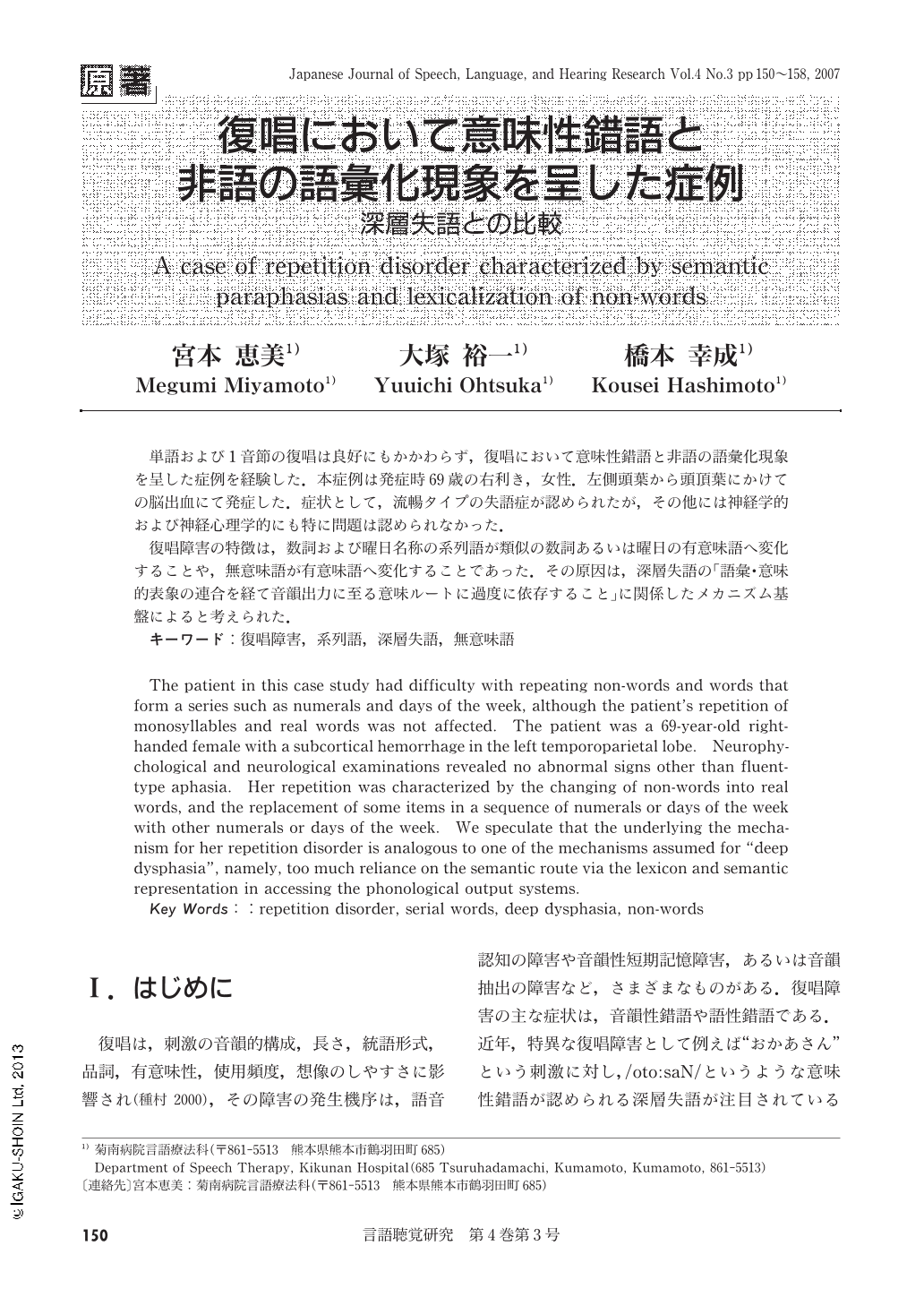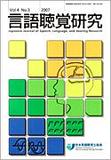Japanese
English
- 有料閲覧
- Abstract 文献概要
- 1ページ目 Look Inside
- 参考文献 Reference
単語および1音節の復唱は良好にもかかわらず,復唱において意味性錯語と非語の語彙化現象を呈した症例を経験した.本症例は発症時69歳の右利き,女性.左側頭葉から頭頂葉にかけての脳出血にて発症した.症状として,流暢タイプの失語症が認められたが,その他には神経学的および神経心理学的にも特に問題は認められなかった.
復唱障害の特徴は,数詞および曜日名称の系列語が類似の数詞あるいは曜日の有意味語へ変化することや,無意味語が有意味語へ変化することであった.その原因は,深層失語の「語彙・意味的表象の連合を経て音韻出力に至る意味ルートに過度に依存すること」に関係したメカニズム基盤によると考えられた.
The patient in this case study had difficulty with repeating non-words and words that form a series such as numerals and days of the week, although the patient's repetition of monosyllables and real words was not affected. The patient was a 69-year-old right-handed female with a subcortical hemorrhage in the left temporoparietal lobe. Neurophychological and neurological examinations revealed no abnormal signs other than fluent-type aphasia. Her repetition was characterized by the changing of non-words into real words, and the replacement of some items in a sequence of numerals or days of the week with other numerals or days of the week. We speculate that the underlying the mechanism for her repetition disorder is analogous to one of the mechanisms assumed for "deep dysphasia", namely, too much reliance on the semantic route via the lexicon and semantic representation in accessing the phonological output systems.

Copyright © 2007, Japanese Association of Speech-Language-Hearing Therapists. All rights reserved.


